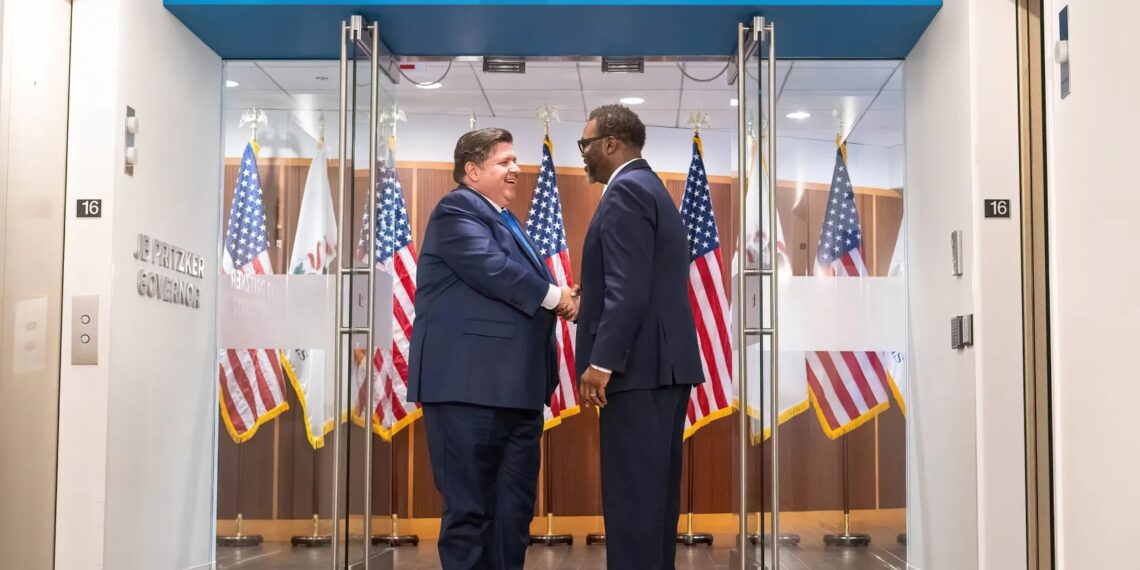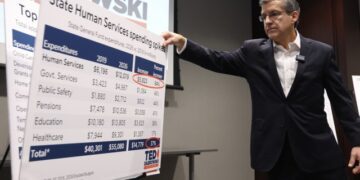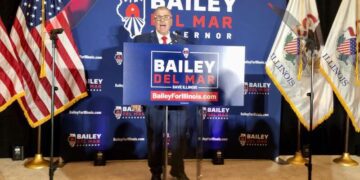By Illinois Review
The countdown to Illinois’ 2026 primary is underway, but the outlook for Republicans is bleak.
With a proven fundraising machine and the nation’s wealthiest governor ready to spend if needed, Democrats hold a powerful advantage – leaving GOP candidates across the ballot facing steep odds.
As the race to replace retiring U.S. Senator Dick Durbin heats up, Democratic contenders are already flexing their fundraising muscles – leaving Republicans in the dust. U.S. Rep. Robin Kelly has $2 million in the bank and raised an additional $565,775 last quarter. Lt. Gov. Juliana Stratton has brought in over $1 million since April. But the biggest war chest belongs to U.S. Rep. Raja Krishnamoorthi, who holds a staggering $21 million in campaign funds – boosted by a $3 million haul in the most recent quarter alone.
In Illinois’ 14th Congressional District race, Democratic U.S. Rep. Lauren Underwood holds a massive fundraising lead over her Republican challenger. According to the Daily Herald, Underwood has raised “60 times” more than GOP candidate Jim Marter. She currently has $1.2 million in her campaign account, while Marter has raised just $21,724 to date.
Since 2018, Governor JB Pritzker (D) has invested over $323 million of his own money into his two gubernatorial campaigns. In 2022 alone, he spent $125 million – dramatically outpacing his Republican challengers. On election night, Pritzker cruised to victory by more than 12 points, with the Associated Press calling the race at exactly 7:00 p.m. CDT – making it the fastest-called race in Illinois history.
Beyond fundraising, Illinois Democrats hold complete control over the state’s power structures – including every statewide office, a supermajority in the legislature and the state Supreme Court. Even if a Republican were to win the governor’s race, their agenda would face major obstacles, as Democrats could block key initiatives, forcing the governor to compromise on conservative priorities to get anything done.
In Springfield, Democrats hold such a commanding majority that they can pass legislation without any Republican support or input.
Meanwhile, the Illinois Republican Party remains dysfunctional and largely ineffective – often targeting conservative, Trump-supporting candidates with vicious mailers and negative ads.
Fundraising also continues to be a major challenge for the state GOP, forcing the party to rely heavily on two billionaires to finance campaigns. However, after a disappointing return on their $100 million investment during the 2022 governor’s race – where Democrats not only won every statewide contest but also expanded their legislative supermajority – those donors may think twice before backing Illinois Republicans again anytime soon.
The primary election in Illinois is March 17, 2026.
By Illinois ReviewFor much of the 2026 gubernatorial campaign, Ted Dabrowski has been clear and consistent about what he believes is Illinois’ most pressing issue.Property taxes, Dabrowski has...
Read moreDetails








